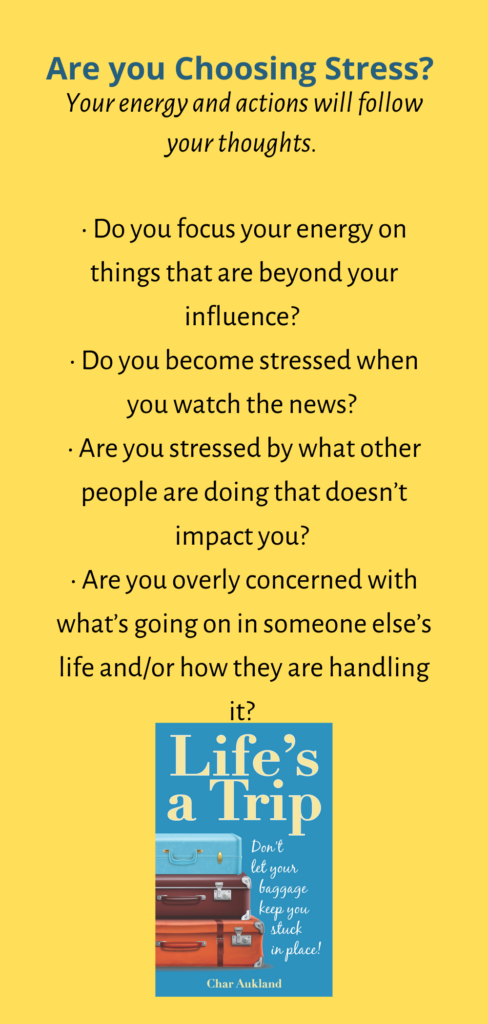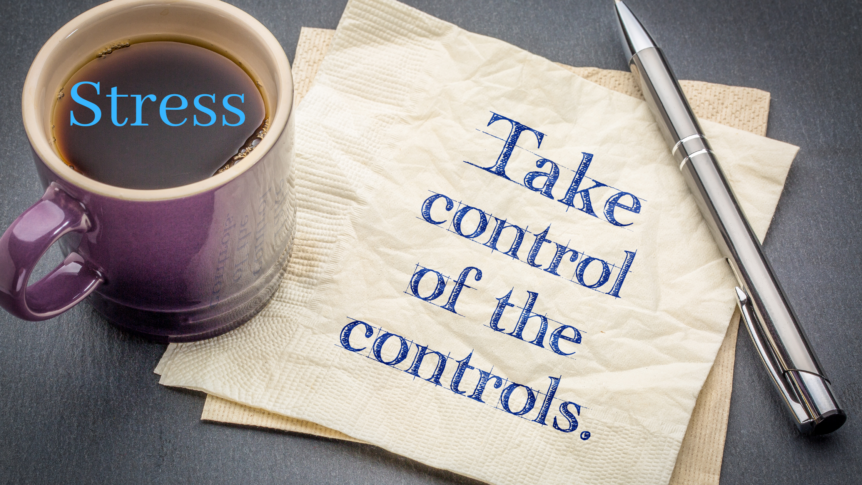Stress, without adequate, healthy coping skills, can quickly become a devastating enemy to fight.
This is especially true when we don’t have the ability to understand that some things are not as important as we make them out to be.
In those instances, we become our own biggest stressors and worst enemies.
Reactions and Overreactions
One lesson that I’ve learned, repeatedly, is that life is too short to waste on things that ultimately, in the grand scheme of things, don’t matter.
It’s ironic because I remember a time when I reacted and overreacted to the smallest things.
Some, I barely remember and some, I don’t remember it all.
I was living in survival mode, riding an emotional rollercoaster— and everything felt like a threat or an offense.
When we exist in various stages of fight-or-flight, recognizing what is truly important isn’t always easy.
3 Ways Stress Makes Us Less Effective
In the following excerpts, taken from Chapter 7 of my workbook, Life’s a Trip, I touch on just a few of the ways in which stress can impact our lives.
Although I take a lighthearted approach, by looking at stress from the perspective of a zombie apocalypse, stress is no laughing matter.
Judging from the events of 2020. I wasn’t far off.
1. Stress Can Be Isolating
“Let’s set the scene: Imagine the zombie apocalypse is here, it’s getting dark, and you are running out of gas. Due to a wrong turn, you’ve become separated from your group and you can hear the drone of the undead. Oh no! They see you!
You are alone and scared.
Isolated.
There are myriad reasons that stress isolates us. Shame normally tops the list.
Many feel that admitting when we are stressed and overwhelmed is synonymous with weakness. It’s not. But ironically, not handling stress will actually weaken us.
Having the ability to say that we need a break is a big deal. It takes strength and wisdom to be able to communicate our needs.
So many people try to give the appearance that they can handle everything, by themselves…at all times.
Meanwhile, they’re breaking inside… alone… prideful… and ashamed.
It is powerful to be able to care for ourselves by just recognizing and admitting to other people that we are taking a step back—or that we need help.
2. Our Decision Making Abilities Suffer
Your heart is racing as quickly as your thoughts. You have no idea what to do next. Your ability to think your way out of danger is quickly diminishing. Feelings of dread and a lack of control take over. You are now in the middle of a “survival game”—a hostile environment where players must survive for as long as possible.
Stress makes us emotional and when that happens, our ability to make rational decisions is negatively impacted.
One glaring example is the hoarding of various necessities throughout the pandemic. At some points, even certain foods were scare. The entire country was just trying to survive—or felt their survival was threatened.
With fear and uncertainty as the directors, stress, anxiety, and emotional thinking fueled behaviors in us, and others, that we wouldn’t have thought possible.
3. We Become Controlled Instead of Taking Control
Some people react to just about anything. Traffic, stoplights, what other people should, shouldn’t, or don’t do—all contribute to their stress levels. And yet many of these issues are minor annoyances at best. They are jeopardizing their health over issues that wouldn’t even register to others.
Nevertheless, and whatever the source, the stresses of life can become so overwhelming that we stop being active participants in our own lives. Instead, we live each day in a state of spectating, reacting—and, at times, trying to escape our reality.
Although I wrote the workbook prior to COVID, virus-related tragedies , racial unrest, political turmoil, and economic uncertainty have definitely taken a certain level of control away from us, in the form of:
- lockdowns
- shutdowns
- fear driven behaviors
- the inability to live life normally, on our own terms
So, in addition to life’s minor annoyances, we are also dealing with life altering stresses, that are beyond our influence.
But, there is hope. By recognizing what is within our control, like our reactions, we can gain our power back—over ourselves.
This might involve removing certain apps, people, behaviors, and habits. In identifying where the issues lie, we give ourselves the opportunity to take control and make changes that will lessen our stress in the long run.
Why Be Intentional?
Being intentional is the opposite of living and existing on autopilot. By living with intention, we create a daily game plan for our lives. We gain more control, instead of randomly reacting to things as they happen.
Intentions can apply to:
- the way we think
- who we allow in our lives
- the ways in which we allow ourselves to be affected
- how we want to act
- our responses
- etc.
Because stress can derail our ability to think rationally, having an intentional behavior plan becomes a safety net.
But, first, understanding where the problems lie is key.
- Start by downloading my FREE Stress Identification PDF mini-workbook to learn how to assess your relationship with stress.
- Next, download my FREE Goal Setting and Intentions worksheets
For a more in-depth look and overhaul, buy my workbook, Life’s a Trip. As you read and work through the pages, you will gain not only understanding, but also the tools to build a stronger, more resilient you.




